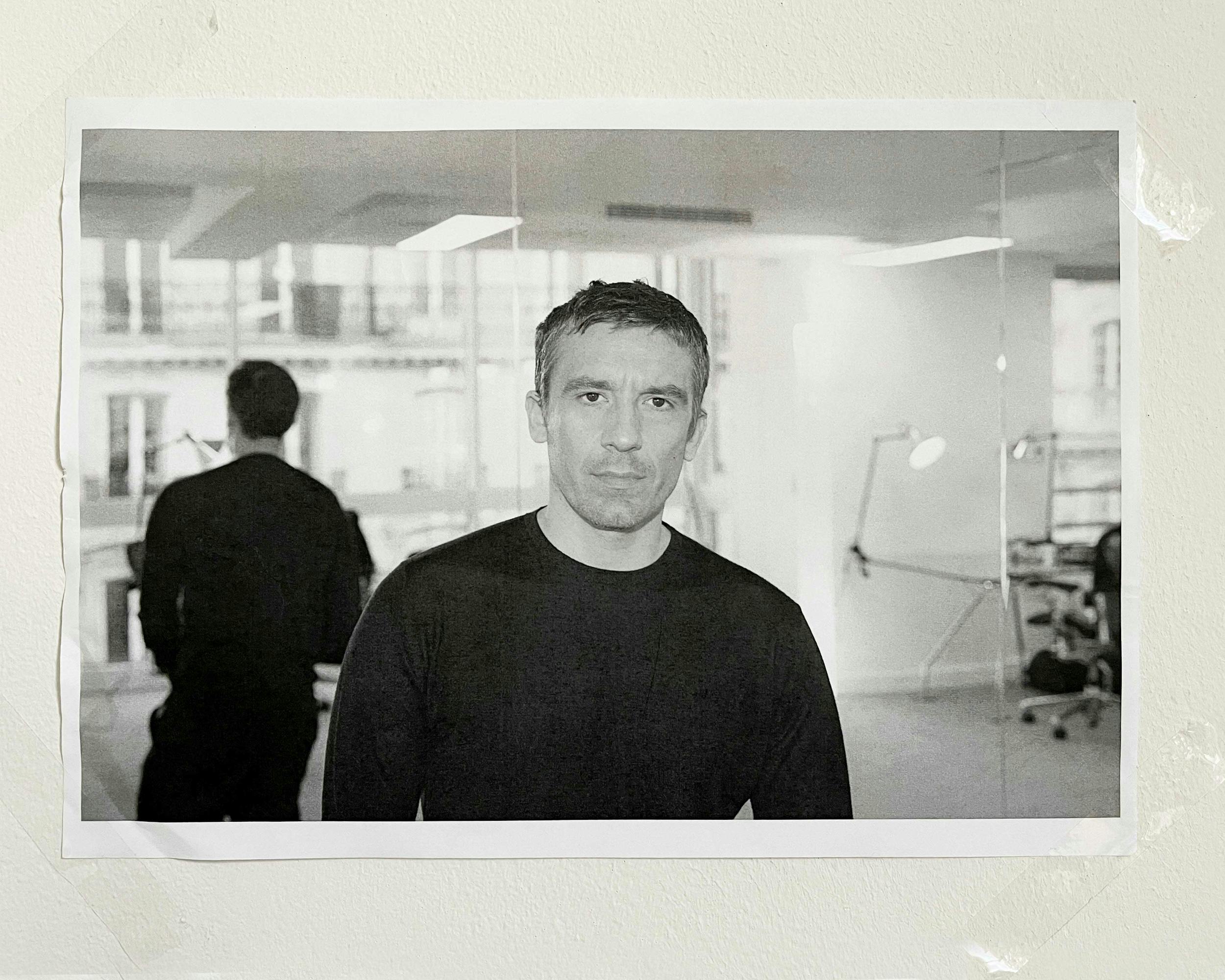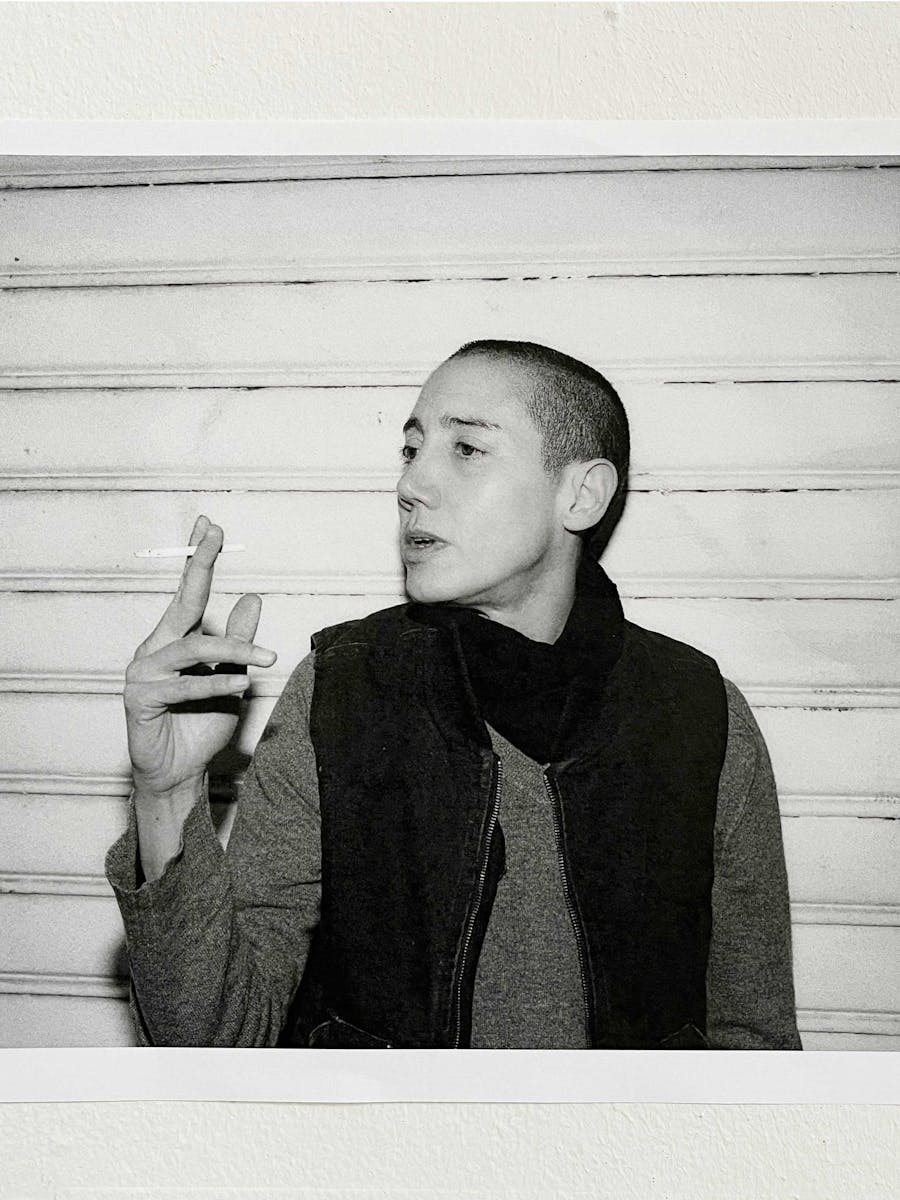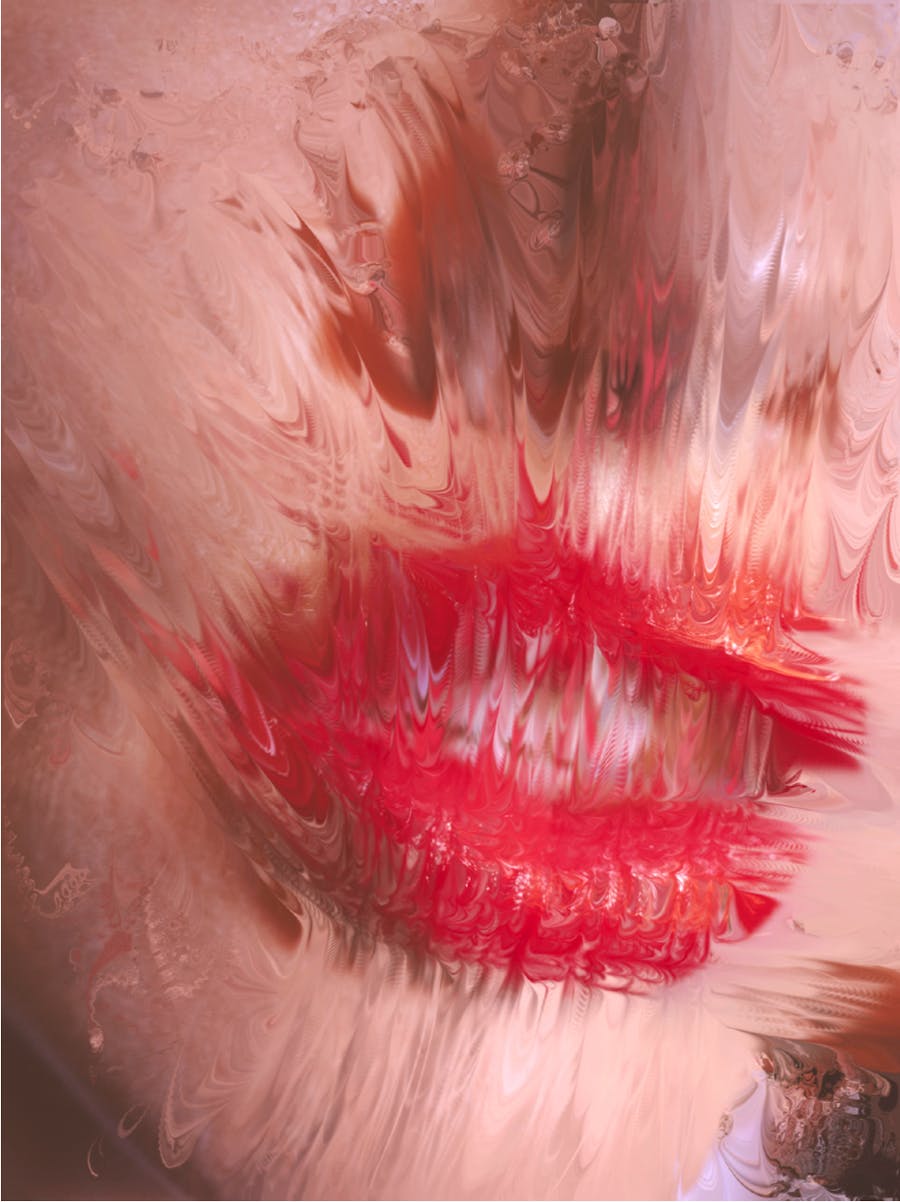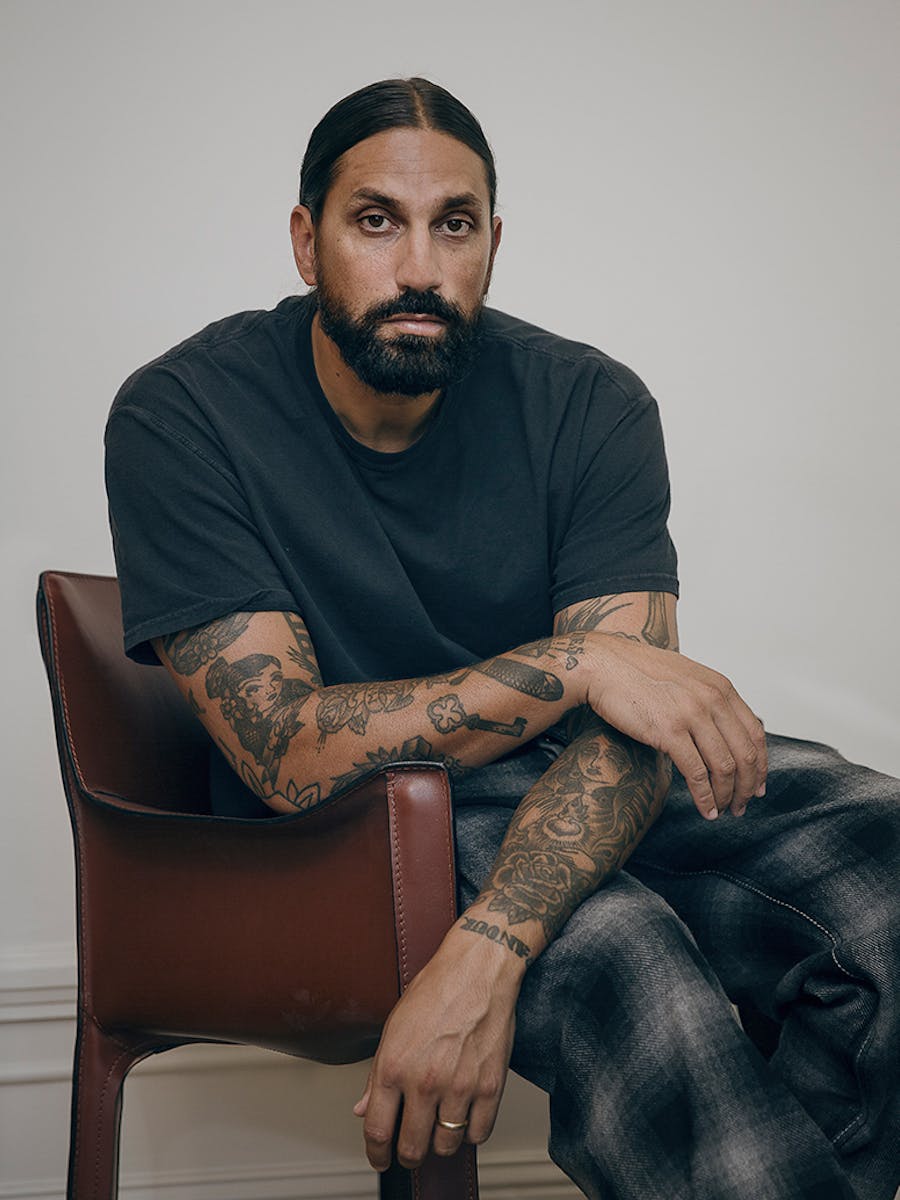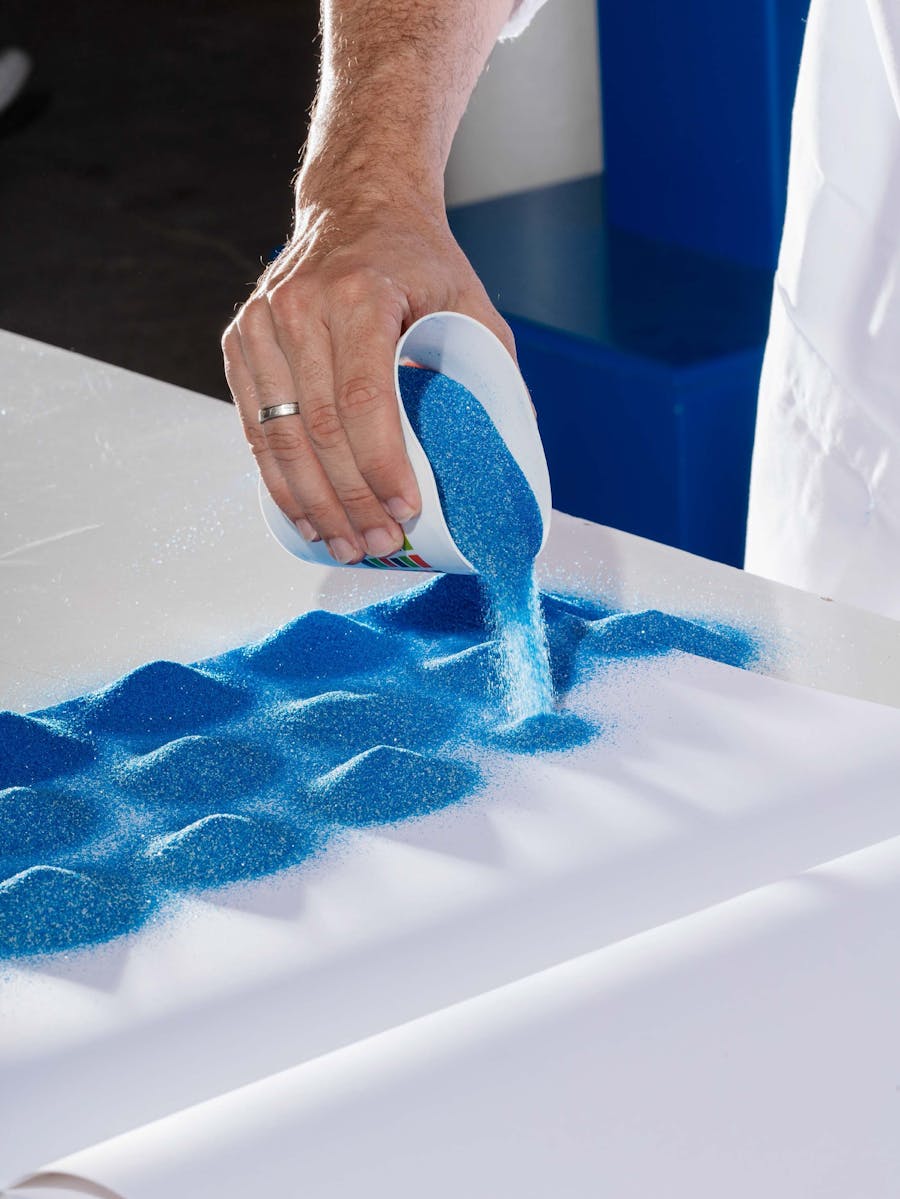From the Game Issue
For nearly ten years, as Artistic Director of Paco Rabanne, Julien Dossena has been infusing the label with his radical and ‘unstill’ style, a style which is always in motion. The designer’s fashion cultivates freedom through transience: everything is a perpetual renegotiation. With this very Debresian philosophy – he sent Constance Debré down the catwalk in 2020 and devours all her novels – Dossena explores the divagations of creation, with a taste for gaming, gambling, and risk. Every one of his collections is distinguished by a gesture that is both pure and sensitive, neither compromising nor being compromised.
The theme of this issue is the game, in all of its incarnations. You yourself are a keen gamer if my information is correct…
I don’t know if I’d use that word, but yes, I’ve always liked playing video games and it’s still the case. At the moment, I’m playing quite a lot of adventure games which are slightly cinematic like Uncharted, but also combat games like Street Fighter, Tekken and The Last of Us. I really like the idea of being guided without it being the case. Gaming for me is really about entering a universe which allows me to remove myself, very easily, from reality.
Like an outlet of sorts?
Yes, I get involved in a video game in a much more immediate way than I would do with a film, say. It’s more instinctive. Playing video games is forgetting what’s at stake, forgetting everything around you, even thinking. I am focused on what I am living through vicariously. It’s the moment where I unplug the machine a little, and the flow of my thoughts.
Can these parallel virtual worlds inspire you to create your own world?
When we create a collection, the rhythm is sustained, the deadlines pile up quickly, you have to constantly be coming up with ideas. The trap is often that of thinking only in terms of what you are going to have to produce. When I go to an exhibition, for example, I can end up mired in analysis, trying to find something I can respond to, in the idea that I may be able to use it at a certain point. With video games it’s the exact opposite: I am enjoying empty time. I can disconnect myself from everything I think about, and it’s very joyful. I’m working on that at the moment in fact : I want to feel things very fully when I see them, without always trying to extract some kind of benefit from them.
Fashion is often described as a playground, a life-sized circus, a theatre. Do you think of fashion in these terms?
That is obviously one side of the industry, but personally that is not the ground on which I like playing. I don’t really experience fashion like that and, moreover, I think it’s a shame to limit yourself to that façade, which is masking the reality of an industry and an economic powerhouse that creates a lot of jobs. Nevertheless, I find this aspect interesting: it’s a place in which you can be what you want, you can play with your personality and have fun with your appearance. And also, it’s a way for fashion to open its doors wide open to the people who would like to work in this milieu or to be part of it in some way.
On the other hand, in my daily work, fashion really is a game. The fact of choosing one colour over another or thinking about this cut or that cut is really very infantile. Dozens of people come together to build a collection and it’s a delightful exercise. Even if it seems a little naïve, I find it really quite magical and sometimes I say to myself ‘all of this is just so you can play with bits of fabric!’
This ludic approach is precious to you…
This aspect – ludic or creative, you can call it what you like – is at the heart of my profession. If I don’t approach it that way, I won’t manage to do it. I don’t necessarily have a strategy for proposing what is most commercially viable at any given moment, but I like it when my collections resonate with the present moment, when they have meaning. For this, it has to be more an exploration, a work of research with my teams, than an attempt to offer up something that we know will work at that particular moment because people expect it or demand it.
Would you say, therefore, that intuition is important for you?
Of course, it is very important and increasingly so. We were speaking earlier about finding a balance in analysis. I have quite an analytic way of going about things, so I attach great importance to this idea of taking pleasure in things, of playing with them, taking a light-hearted approach, to also be able to express as purely and personally as possible what I have to say when I have to say it. It’s a whole journey. Working here for ten years, what I’ve learnt is how to let go – a kind of instinct, something more childlike.
Are there things that you find easier to do, after ten years?
I’ve already started to take a step back from the job. When you start, you give yourself over to it entirely, to pay your dues. Today, my teams and I can build on solid foundations that give us greater confidence, so that we are able to experiment with new things. The idea is not to hold back.
Your latest collection (autumn-winter 2022/2023), which plays with volumes and architectures, seems to inaugurate a new creative era and to reveal a previously unseen side of your work…
I wanted to continue to tell myself that I was exploring things. That’s also why I do this job, to keep going to places I’ve never been before, to continue to search for things I have never yet expressed. That’s really what interests me – and more the process of getting there than the result, ultimately. Experimenting is also letting go, detaching yourself from the idea that creating a collection is about ticking boxes according to needs. This collection is the result of this process of reflection, or rather of non-reflection !
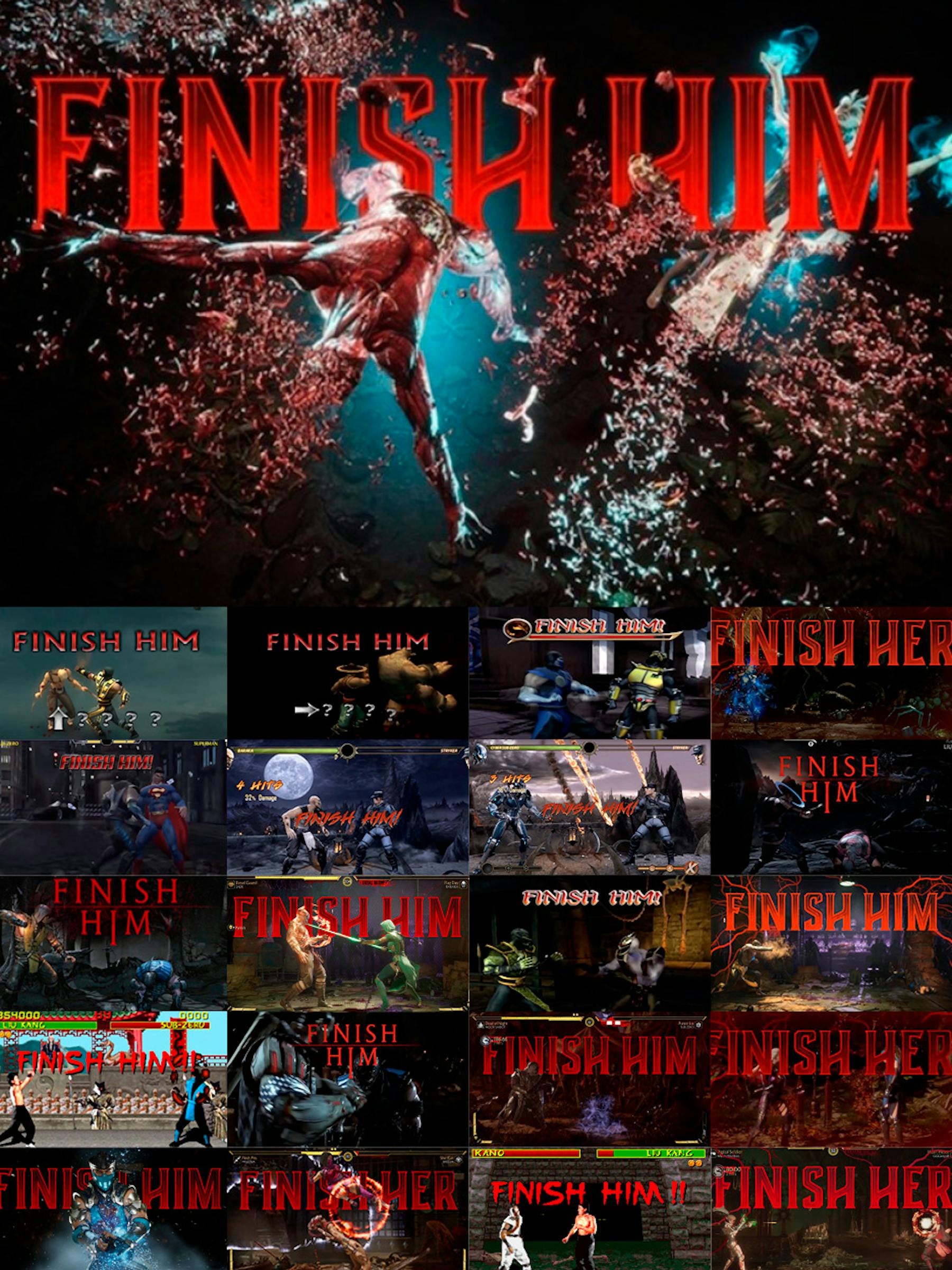
Screenshots from
MORTAL KOMBAT 1 & 2 — Warner
You are surrounded by actresses: Adèle Exarchopoulos, Marina Foïs, Leïla Bekhti to name but a few… Does fashion allow you to take on roles, to play with the idea of the self, or is it more about helping us to find the toolkit closest to what we really are?
I’ve always thought that we are permanently moving. I don’t like when people say to me ‘I’m like this’ or ‘that’s just my character’. Basically, it could be said that when I get up in the morning I am not the same person I was the night before. So I’d say that the answer to your question is something in between. Fashion allows you to take on the role of whatever you are in that moment, but it’s changeable. We move with things, according to what we need to express of ourselves to the world. It’s there that freedom is so fundamental. If one day you want to express something really light or fun you can, in the same way that you may feel strong and equipped to defend a certain point of view.
Is fashion for you more a means of production than an imposition of norms?
Yes, and with it the creation of new norms too, potentially. I am all for fluidity: the possibilities are always shifting, exploration itself infinite. This choice and this freedom are what I find beautiful, particularly at the moment. I like to observe how people appropriate fashion, and the incremental ways in which changes occur. When one constructs one’s personality, fashion is often a prop or a tool. Communities can also hybridize culturally or politically to give rise to others.
Are you able to distinguish the contours of the Paco Rabanne community?
It consists of people who are pretty free, pretty strong. Wearing a Paco Rabanne dress as part of an outfit is already something of a commitment! It resonates graphically on the body and you have to have a solid personality to pull it off. I think that our community is looking for something original and playful. Paco Rabanne’s references allude to a certain idea of hedonism, of pleasure. The first people who came to the boutique, and whom I wanted to dress, were people from the queer community. I’m glad that my work naturally resonates with them. I love this idea that strong personalities can take on even more, become even stronger.
Your father ran a nightclub in Brittany; in an interview you described him as a ‘magic maker’. Very early in your life, as a child, you had the experience of partying. What did you observe of nightlife as a child?
For me it was like a playground for adults. When you’re a child you spend your time playing and there, bizarrely, I saw the adults have fun and lose control. It was actually quite easy to play along and to enjoy it too: I danced, I drank my Coca-cola…It was a shared, suspended moment. I remember all the neon and the light-up floor for dancing…It was like an enormous party with all that implies in terms of fun and games and freedom. I saw it like a bubble, which was protected, where I was protected, too. Later, as an adult, I think it’s at night that I have had the most fun, met different people and let go the most. Little by little, I lost the magic and my child eyes and I have been able to see the way it can potentially spiral out of control. Night time can become a vortex, suck you in and never spit you out again. But it remains for me a place where freedom is the first principal, where everyone has the possibility of being themselves or playing in a way that is totally free, without conventions or barriers.
How do you play with eroticism and seduction in your fashion ?
There is, in my work, a consciousness of the body. I like the idea of the skin, which I find beautiful in general. More than that, I like the idea of a sensuality which presents itself like a flash. A part of the body will touch me sensually and I’ll want to highlight it. Eroticism takes its place in these apparitions in fragmented form. I’m not suddenly going to expose a décolleté all the way to the navel; it would be more a case of seeking out a movement, a fold, a bare neck…That’s what night is about for me : a flash of a face, a forearm, a waist…You can never apprehend the skin in its entirety. The idea of catching sight of something that you will then have to look for pleases me. I function like a strobe light.
For some seasons now, fashion has been called upon to take a more serious stance on moral issues by engaging with environmental and political questions. Yet fashion is all about the party and the game. How can it articulate these two components and yet find a place in an increasingly complex world?
I make clothes and offer proposals which are there to be engaged with. These are personal expressions designed to reach a public, whoever that public may be, wherever they may live, whoever may have a desire for or a need of it at a given moment. But fashion is, inevitably, a reflection of the world and if this reflection does not resonate with the present time, I can find it misplaced. That also means that the proposition has a life independent of the proposer. It is hard to express the state of the world at the moment; it’s a very hard balance to find. I don’t express publicly my political or social positions, they appear rather, I believe, in a more diffuse way. For example, if I feel the world has need of decency, as is the case today, I will naturally lean towards something more austere and think about things which will ennoble the people who are wearing my clothes. I always have a tendency to think of the standpoints of others as sincere, but when it is mixed with a moralizing and publicity-seeking impetus, it is a little bit more complicated. At Paco Rabanne, we’re a medium-sized company in the luxury sector. We have our artisans work in the most ethical way possible whilst trying to keep alive a whole corpus of savoir faire. We are engaging with sustainability in a very concrete way: it’s the reality of our profession, which leads us towards this way of going about things. But I don’t want moral values to become a standard for selling more clothes, for consumption to be more acceptable. It is there, to my mind, that decency and indecency come into play. I prefer to try to concentrate on what I can propose and what I can give.
You can create without sloganeering…
Regardless of the communications, at the end of the day boutiques are filled with clothes to sell. It is maybe a matter of purity, but I can’t imagine selling T-shirts on the back of a tragedy.
Speaking of purity and intransigence, Constance Debré modelled for you on the catwalk in 2020. She is present in this issue of Exhibition, on the occasion of the publication of her novel, Name. Why did you choose her to go down the catwalk? Is it because her books, her words, move you?
She’s great isn’t she? Constance has an incredible power in her writing. I really like personalities of this type and there aren’t many of them. She has backbone, she’s indestructible ; she will go to the exact place she wants to. I think her writing is the reflection of this strength, of this rectitude. She’s given herself a path to follow and she will not stray from it. I find it very admirable. This way of living on a highway of demands requires real courage. I loved Name as much as I loved her first two books. We met at a dinner, a few years back, where we were seated next to each other and straight away we got on. We spoke about the books that had been fundamental in our development. Then, we saw each other again a few times and I said to myself that I really wanted to dress people like her. Constance is very lively in her way of apprehending things and very curious. She wants to continue to experiment. I think that the fact of walking in a fashion show is, for her, an experience to add to all the others. I think it’s great that she’s not stuck in her rut. She is open. She is a noble soul.
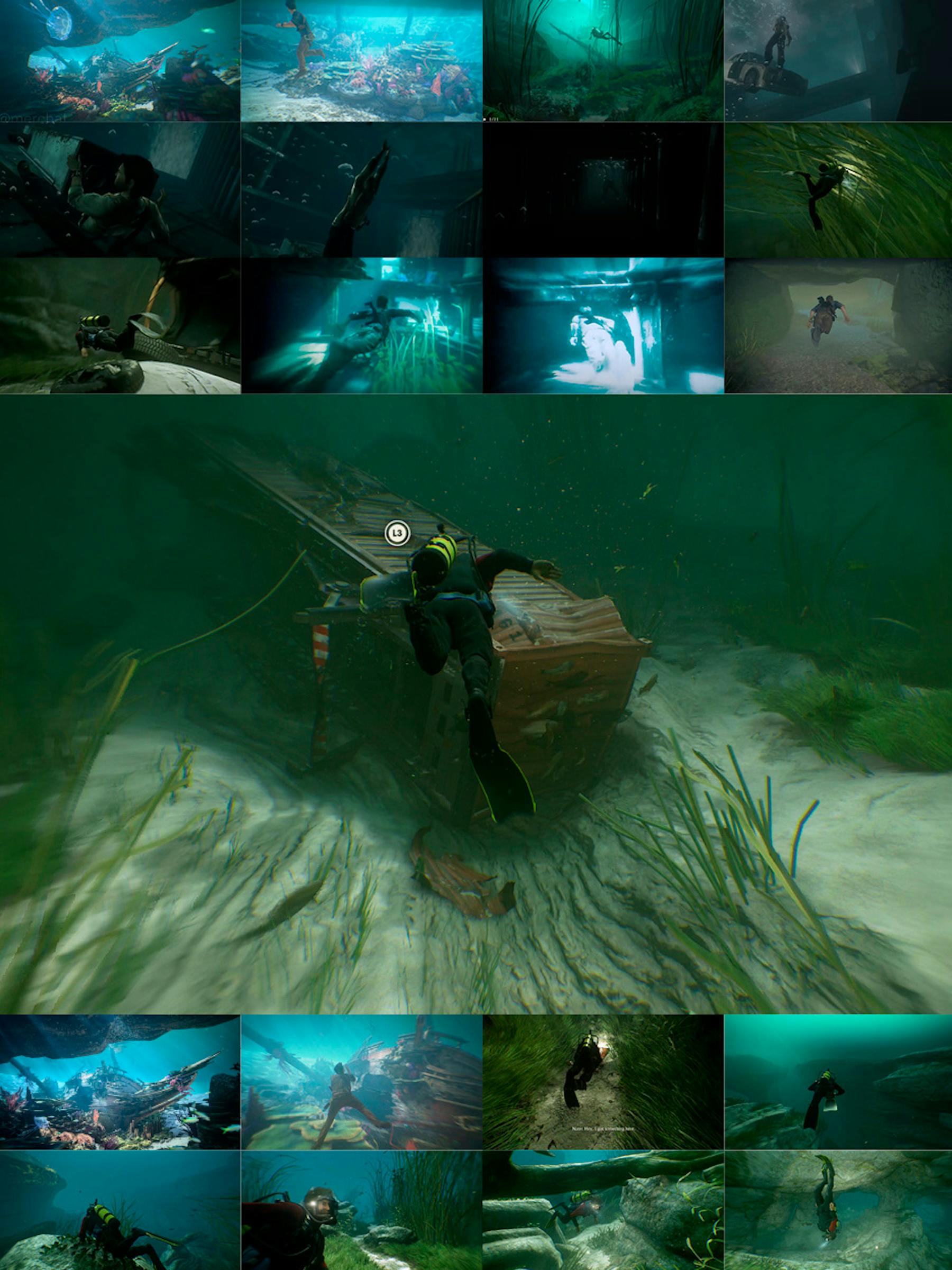
Screenshots from
UNCHARTED — Sony
In Name, she writes these lines : ‘I will always tell you the same thing. That you have to leave. No matter how and no matter where to. Leave. Go further and further away. Geographically or without moving.’ In the ‘Hometown’ article in i-D you said that as a child you wanted to ‘leave’ whatever the cost. Has everything that you’ve accomplished allowed you to find your place today – or at least the one you imagined finding?
Yes, I think so, but I still love that idea of movement, the possibility of being able to go and seek things out elsewhere. And to live them as well, elsewhere. Impermanence interests me, the fact of never being satisfied in the place you are. Of course, this is a double-edged sword : you cannot always be in the projection of what you would like to do.
Unstillness has a cost then…
Yes. The search for balance between impermanence and life is endlessly fascinating. How do you articulate the imperative to always be elsewhere from where you are in life and to be fully immersed in a particular moment?
At a certain point on your Instagram you were posting extracts from books. Is it a passion that you prefer to keep to yourself a bit more these days?
Literature still constructs my visual unconscious, but I stopped posting extracts because I lost interest in social networks. Today they’re for work, that’s it. At the start I found it quite fun, you could share interests, like things you’d read, in this instance. I was curious to discover things I didn’t see elsewhere, and I found it nourishing. Now I feel like it’s anything but this. I still take pictures of pages from books like post-its of a sort, but I keep them for me.
What are you reading at the moment?
I always have three books ready to go. At the moment, on my bedside table, I’ve got the latest Houellebecq, a Gide and Five Meditations on Beauty.
Does the designer Paco Rabanne – atypical, radical – inspire you as much as his creations?
The man is as fascinating as the way in which he expressed himself, visually, aesthetically and philosophically. Culturally, he completely revolutionized the idea of what an item of clothing could be. Within him there was a whole world. He was an artist and fashion was his medium. He associated with the avant-garde of his era to try and maximize his expressive power. He was the very definition of being in touch with the zeitgeist, while remaining faithful to a very personal vision. His intellectual conceptualization around metal, the woman as armour, that new, almost fetishistic sensuality – all that was his idea of what he needed to express, with great innocence and purity. Few designers succeed in being so radical, in supporting a vision both global and intimate. You have to believe in it to say to yourself that metal dresses are going to become a cultural reference point throughout the world!
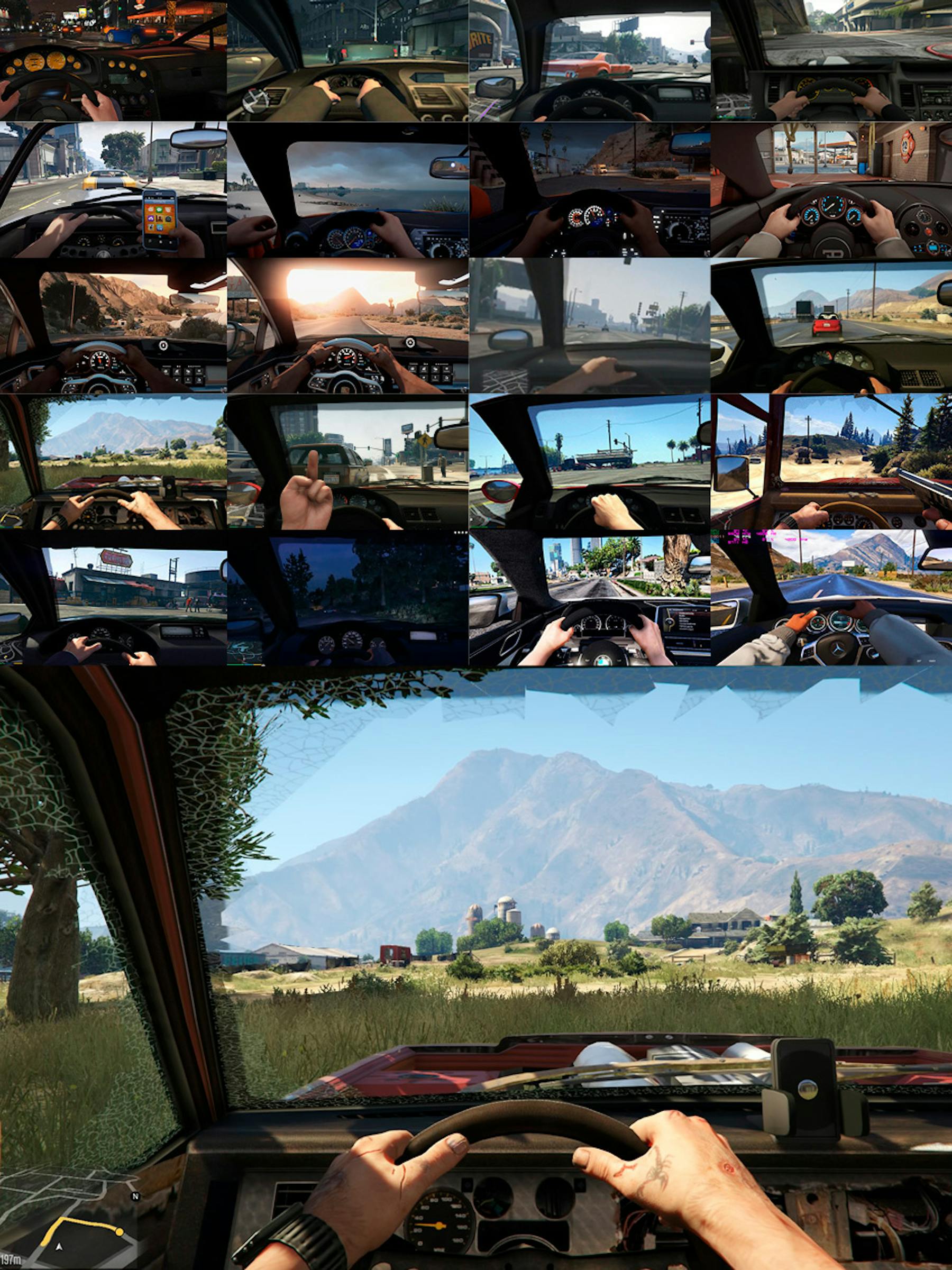
Screenshots from
GTA — Take 2 games
For this issue dedicated to games, Exhibition magazine gave Julien Dossena a carte blanche. A video game enthusiast, the artistic director of Paco Rabanne has taken screenshots of his favourite games: Uncharted, Mortal Kombat, Need for Speed, Tomb Raider, Street Fighter and GTA. A mosaic of screenshots that propels us into the virtual universe of the designer, which oscillates between refuge and outlet.
